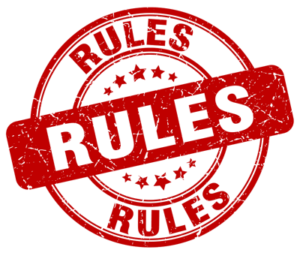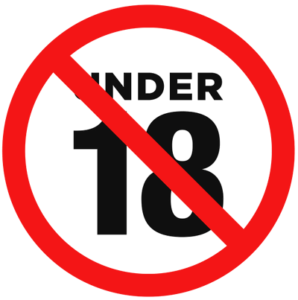Can You Bet With Your Mates Legally?
 When it comes to betting, we all know that avoiding unlicensed bookmakers is the way forward. Licensed ones have to follow numerous different rules and protocols in order to get their licence from the United Kingdom Gambling Commission, so in only betting with those that have done so we are presented with at least a modicum of protection. Yet what about if we just want to have a wager between friends? Is that entirely above board?
When it comes to betting, we all know that avoiding unlicensed bookmakers is the way forward. Licensed ones have to follow numerous different rules and protocols in order to get their licence from the United Kingdom Gambling Commission, so in only betting with those that have done so we are presented with at least a modicum of protection. Yet what about if we just want to have a wager between friends? Is that entirely above board?
There must come a point at which having a private punt between people that you know crosses over to become something that you’d need a licence for, but it’s not necessarily clear when it is. If you take a pack of cards to the pub with you, are you breaking gambling rules by having a £10 wager between friends on the outcome of the game? What if you invite a stranger to join in the game? What if you charge a commission for running the game? It’s a confusing and not altogether easy to understand situation.
What The Rules Say
 Non-commercial gambling of pretty much any kind is entirely legal in the UK, at least as far as the United Kingdom Gambling Commission is concerned. That, of course, depends on what ‘non-commercial’ means. With ‘commercial’ meaning that it is for private profit or gain, that makes things slightly more complex given that the winner of a bet between friends will doubtless be pocketing the winnings.
Non-commercial gambling of pretty much any kind is entirely legal in the UK, at least as far as the United Kingdom Gambling Commission is concerned. That, of course, depends on what ‘non-commercial’ means. With ‘commercial’ meaning that it is for private profit or gain, that makes things slightly more complex given that the winner of a bet between friends will doubtless be pocketing the winnings.
You can gamble privately on the proviso that you’re doing so in a private capacity, meaning that it’s either ‘domestic betting’ or ‘workers’ betting’. As long as no rake or commission is being taken on a private bet for the purposes of making a profit separate from the profit gained as part of a game, then the betting will remain non-commercial. To put it another way, if you wanted to play a card game with mates and charged them all £1 to play in additional to stake money, that would be an issue.
The key thing in all of this is that no money can be made from betting that isn’t won. In other words, you could hold a full-on casino night in your front room and kitchen, complete with professional roulette tables and blackjack dealers, as long as you aren’t charging anyone a fee to either enter the property or take part in the game. Ask for a donation for some reason, such as covering your costs, and you’ll fall foul of the UKGC’s rules.
What If It’s In A Pub Or Commercial Venue?
 In the eyes of the UKGC, there is a fine line between being a pub that allows betting to take place and being a gambling house. The rules on each and the types of licence that would need to be held are the key factor, of course, which is why publicans work hard to ensure that they don’t stray too far over the line. The Gambling Commission has put rules in place to limit stakes and prizes to ensure that pubs don’t get into trouble.
In the eyes of the UKGC, there is a fine line between being a pub that allows betting to take place and being a gambling house. The rules on each and the types of licence that would need to be held are the key factor, of course, which is why publicans work hard to ensure that they don’t stray too far over the line. The Gambling Commission has put rules in place to limit stakes and prizes to ensure that pubs don’t get into trouble.
Weekly poker nights are a common occurrence at pubs, but they have strict conditions put on them to ensure that they don’t suddenly become a gambling house for hosting them. The maximum stake that a player can wager is £5 per game, whilst the pub as a whole is not allowed to get past £100 per day. Obviously there isn’t necessarily someone monitoring this, but a pub breaking the rules would likely face heavy fines for doing so.
It’s also worth noting that you need to be careful about bets with members of the public. Technically there’s nothing wrong with saying to someone next to you in the pub that you will wager £10 on your favourite team winning. Where it becomes an issue is if you essentially start acting like a bookmaker and take a cut of the wagers being placed. That would break the rules of the UKGC and you’d doubtless find yourself in trouble if you made money from others’ bets.
One of the key reasons for this is that gambling companies have to pay a given amount of tax and how they are taxed differs from normal people. If you were making money from cash games then you’d be liable for tax, yet you couldn’t just put it in your tax return as a normal profit made. It’s obviously a massively complex issue, but the important thing is that you avoid making any sort of profit from gambling other than the winnings that are rightly yours.
What About People Under The Age Of 18?
 It is illegal to gamble in almost formats under the age of 18 and the UKGC and ASA have tight regulations on this for licensed operators, such as verification checks before you can deposit or bet.
It is illegal to gamble in almost formats under the age of 18 and the UKGC and ASA have tight regulations on this for licensed operators, such as verification checks before you can deposit or bet.
There are some very low stakes forms of gambling that under 18’s can partake in, such as in amusement arcades and of course over 16’s can play the lottery still (at the time of writing, although this may change in the near future).
What happens then in the scenarios discussed earlier if you place a bet with a minor? Well this is still technically illegal but it would be very difficult to enforce unless someone informs the authorities about it. Of course, minors themselves will often bet with each other either for money or something else, a common occurrence on the school yard in my own youth.
This is a very difficult grey area. On one hand you may say it is harmless fun but on the other hand it can act as a gateway into more dangerous forms of gambling later down the line.
All we can say is never bet with or take a bet from anyone under the age of 18. Even if you think you might not get in trouble is it really worth the risk to them and you?
Answer: You Can Bet With Your Mates If Not For Profit
 The simple truth is that you’ll generally be fine when it comes to gambling with friends or even strangers as long as you don’t make any sort of profit from it other than the actual winnings you receive. It doesn’t really matter whether you’re playing roulette, putting on a lottery or hosting a poker night, it’s all ok as long as you don’t do it for commercial gain.
The simple truth is that you’ll generally be fine when it comes to gambling with friends or even strangers as long as you don’t make any sort of profit from it other than the actual winnings you receive. It doesn’t really matter whether you’re playing roulette, putting on a lottery or hosting a poker night, it’s all ok as long as you don’t do it for commercial gain.
It’s that last sentence that really is the key one. You can bet a friend of yours a million pound, should you both be able to afford it, that you can toss a coin and have it come up heads fifty times before they’re able to and you won’t need a licence to do so. If, however, you allow your friends to have a side bet and charge them £1 for doing so then you’ll be in trouble with the licensing authorities because you’re making a profit.
It might seem like an odd thing for the Gambling Commission to get upset about, but it’s what stops companies from offering unlicensed betting and that is, essentially, the UKGC’s biggest fear. The rules and regulations are largely in place in order to stop people from developing gambling problems, as well as to allow the British government to collect the correct taxes. Whilst the former is a social issue, the latter is one that will cause major issues with the powers that be, who always want to ensure that the collect monies owed to them.



